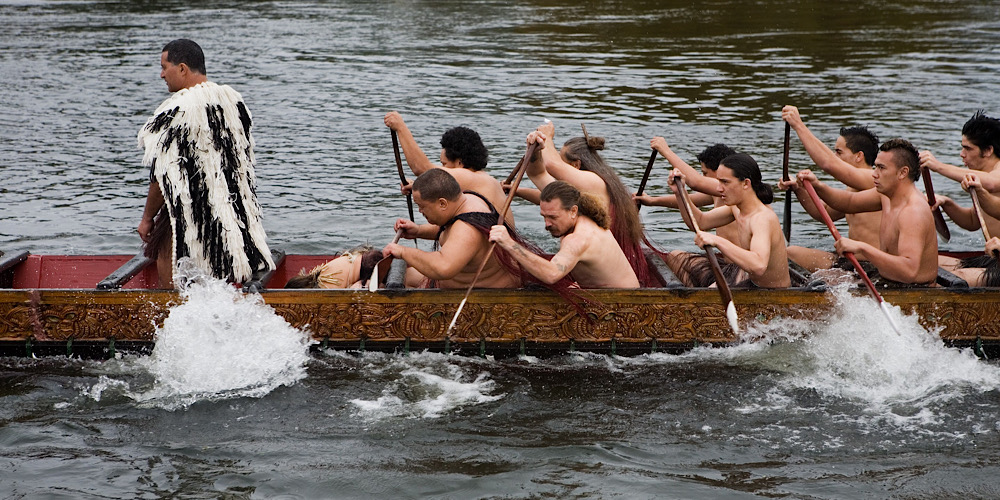
The ideas in this blog were inspired by a new knowledge brief published by the Transformations to Sustainability programme.
Contemporary approaches to water governance and management – which in many places are characterised by ‘Western’ approaches that tend to view water as a resource for human use – have failed to form adequate solutions to environmental problems such as desertification, flooding and water scarcity. In order to mitigate these problems, Western water management requires re-evaluation, and integrating Indigenous knowledge and values is one way to seek new solutions for sustainability.
Core issues arise with the Western mentality as it separates the human experience from nature and controls water resources through formal rule-based institutional governance. Western concepts and ideologies, innate with the ‘settler’ mentality, view water as a resource that can be owned, managed, extracted and exploited.
Indigenous peoples, on the other hand, have a different worldview. For them water is a living entity and non-human living entities are treated with reciprocal responsibilities. This is highlighted in the spiritual significance, honour and respect given to nature, which can be seen in their intimate relationships with natural resources.
Their knowledge and outlook towards water management isn’t based on politics or economics, but on nature itself. Their knowledge therefore offers alternative solutions to restoring degraded ecosystems and can suggest new frameworks for building a more sustainable, holistic and equitable approach to the management of natural resources.
Indigenous peoples around the world have experienced a legacy of inequality and exclusion, impeeding their access to natural resources and basic services, as well as to justice and decision-making. Not only do Western governments limit Indigenous collaboration in evolving Western water management systems, but they also exclude Indigenous peoples from their own natural resources.
“Marginalizing Indigenous knowledge and responsibilities in relation to water resources has contributed to the degradation of their freshwater systems, and this can adversely affect the capacities of Indigenous peoples to maintain their relationships with water, land and other resources, further eroding their cultural identities, health and wellbeing.”
From the Transformations to Sustainability knowledge brief:
Promoting Indigenous knowledge and values for more sustainable water resource management
In recent years, Indigenous management approaches and rights have been increasingly recognized by governments, primarily due to The United Nations Declaration on the Rights of Indigenous Peoples (UNDRIP), which was adopted by the UN General Assembly in 2007. Today, the declaration is the most comprehensive international instrument on the rights of Indigenous peoples. It founded a universal framework with minimum standards for the survival, dignity and well-being of all Indigenous peoples, along with specific human rights standards and fundamental freedoms catered towards Indigenous peoples.
Yet, there’s still a long way to go. Quentin Grafton, director of the Food, Energy, Environment and Water (FE2W) Network explains how in Australia, a nation facing a water emergency, there are Indigenous peoples in remote communities who only have poor-quality drinking water, which is slowly killing them with chronic kidney disease.
In the Murray-Darling Basin many smaller communities, such as Wilcannia, have literally run out of water. Downstream communities with lawful priority access to the water did not get the water they needed because of upstream irrigators. In some cases, these irrigators illegally take more than their fair share. Aboriginal people account for about 10 percent of the population in the Murray-Darling Basin yet only have 0.2 per cent of the available water. Elsewhere, these minuscule amounts are eroding further, as Australia’s wealthiest ask the Western Australian government access to billions of litres of more water from the Martuwarra (Fitzroy River), one of the world’s last pure river systems.
Fortunately, there has been some positive growth in terms of sustainable Indigenous-Western water governance. For example, in New Zealand, which initially voted against the UNDRIP, policy-makers now work alongside the Indigenous Māori groups, incorporating Māori and Western knowledge in new co-governance arrangements. In Aotearoa New Zealand, the Waikato River Authority comprises 50% government representatives and 50% Māori stakeholders. Plans for the future management of the river recognize the Māori concept of guardianship and the ‘legal personhood’ of the river too.
There is still a long fight ahead in establishing Indigenous views that can offset much of what is missing in the struggle towards equitable and sustainable water (and other resource) management approaches.
If Western and Indigenous governance and management of water were further integrated, it should result in a more equitable relationship with nature for the long term. A beneficial shared future could hold cumulative knowledge, subject to modification and verification. This would mean an acceptance of ecosystem interdependencies, along with legal recognition of Indigenous beliefs, leading to social, political, economic and environmental benefits for all. Additional research is needed to assess how collaborative and co-management approaches can best address the challenges posed by environmental degradation, climate change and inequalities, and work together for transformations to sustainability.
Photo by Jorge Royan from Wikimedia